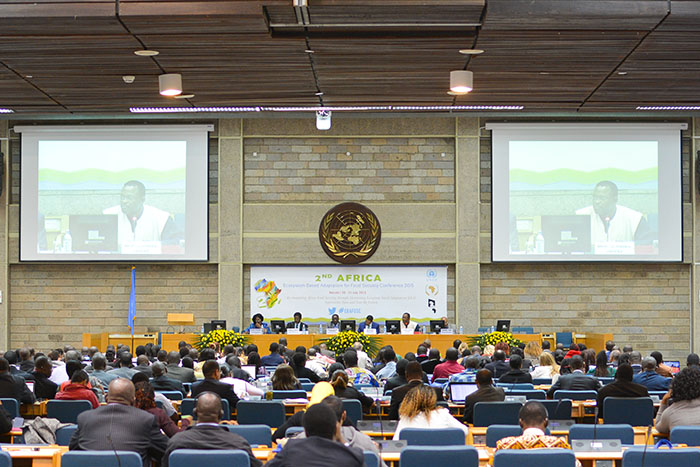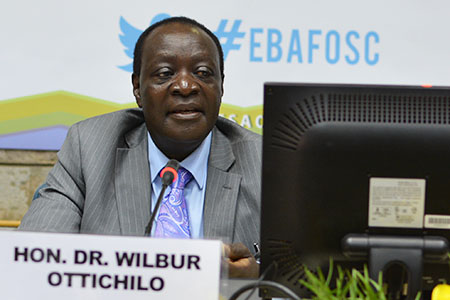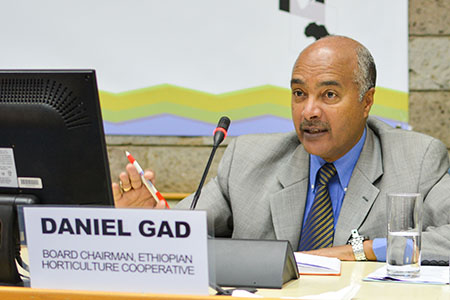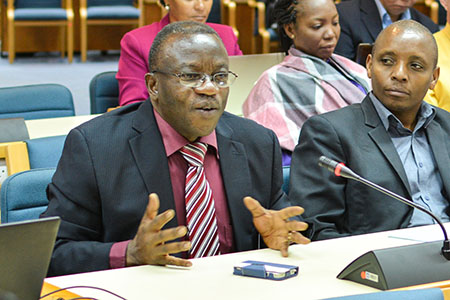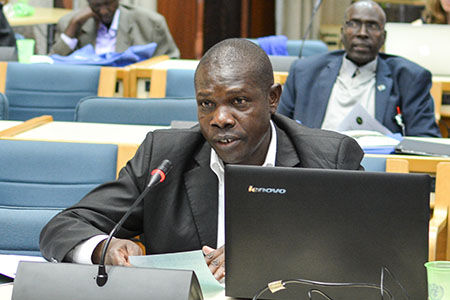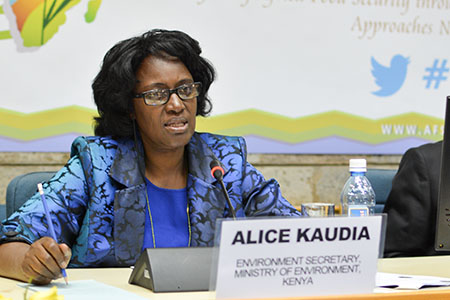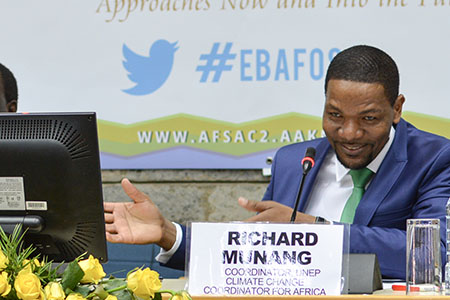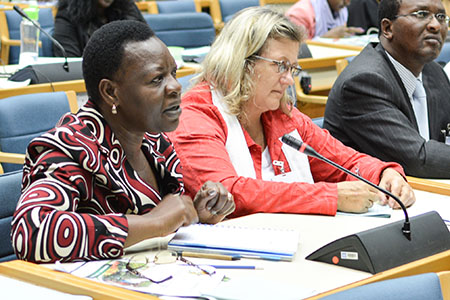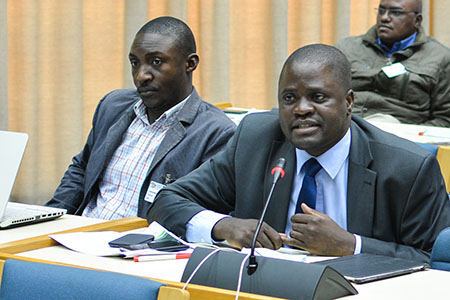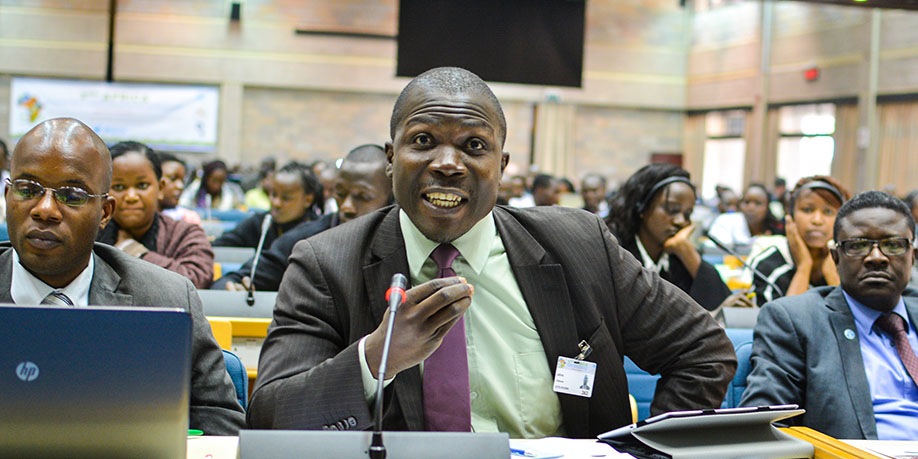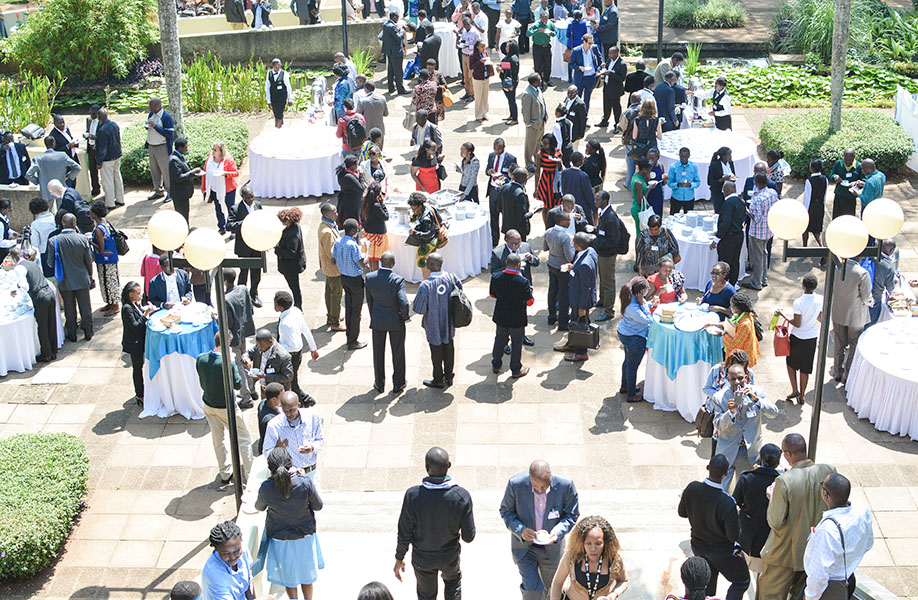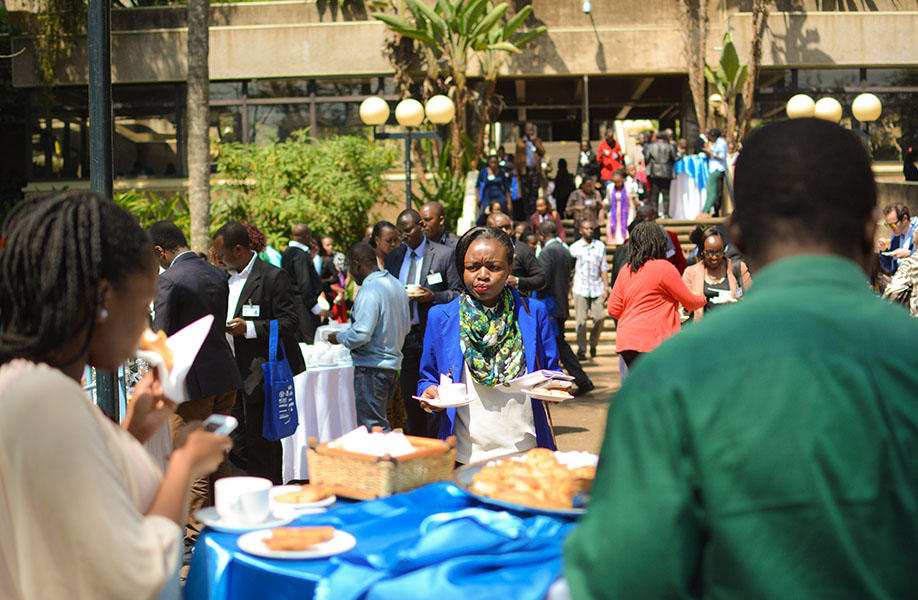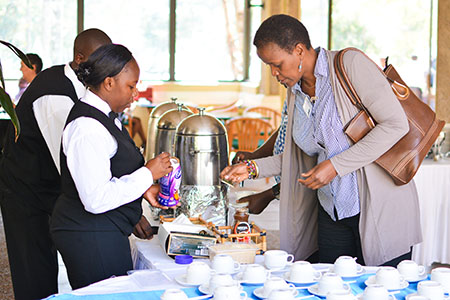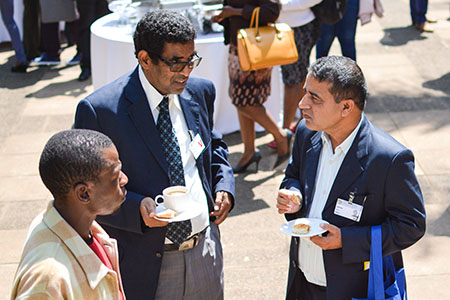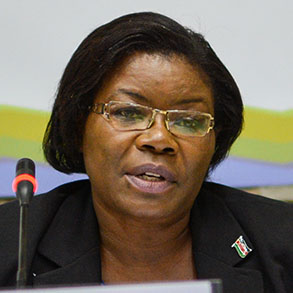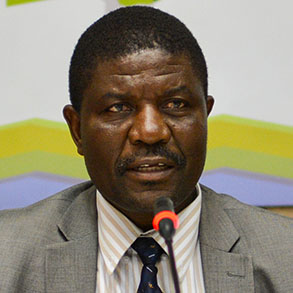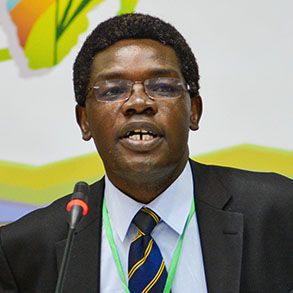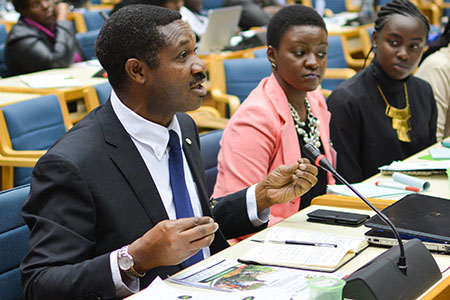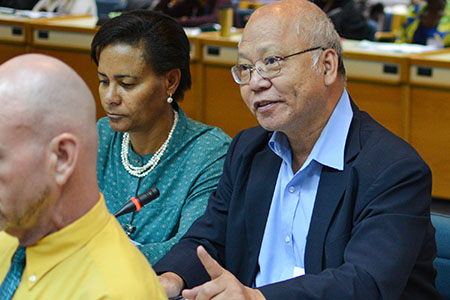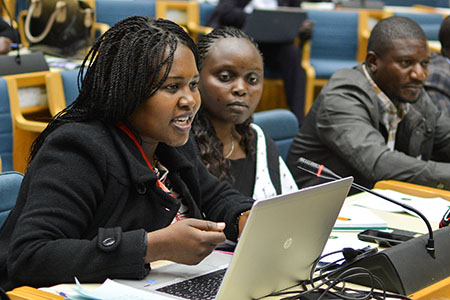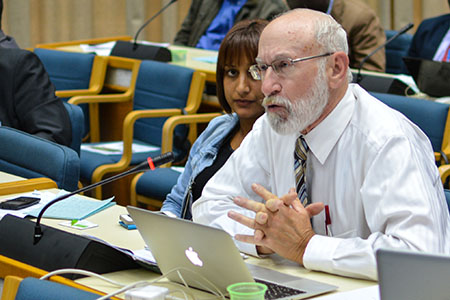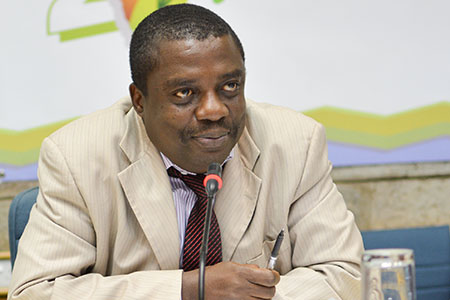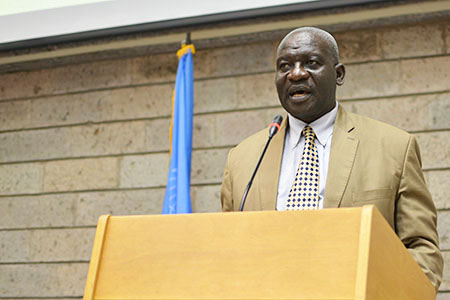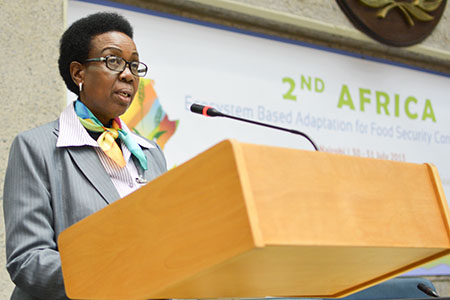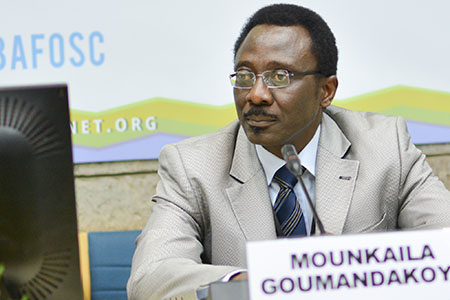|
On Friday morning, EBAFOSC 2 delegates met in plenary discussions throughout the day to explore policy issues related to scaling up EBA-driven agriculture on the continent, as well as practical recommendations for the way forward.
The first plenary session, on ‘Making EBA work in Africa through maximizing policy frameworks,’ explored, among other issues: why current policies are not working for EBA-driven agriculture; how to mainstream EBA concepts within existing regional policy frameworks and political processes; new forms of public and private investment that can support the transformation of Africa’s agricultural paradigm; and how to generate resources for knowledge generation, dissemination and capacity building.
In the second plenary session, titled ‘Way forward – plans and strategies for implementing and scaling up EBA approaches and agro-value chains to ensure food security, ecosystem productivity, climate resilience and income generation,’ delegates exchanged views on, among other issues: the roles of different stakeholders in implementing and monitoring the progress of EBA-driven agriculture at the local, national and regional levels; and how to foster collaboration and increased synergies among the various levels.
During the closing session in the afternoon, participants adopted ‘The Nairobi Action Agenda on Africa’s Ecosystem Based Adaptation for Food Security’ as well as, the Constitution establishing a new pan-African institution, the Ecosystem Based Adaptation for Food Security Assembly (EBAFOSA). Following closing remarks by Rhoda Peace Tumusiime, Commissioner for Rural Economy and Agriculture, AUC, Conference Chair Alice Kaudia, Environment Secretary, Ministry of Environment, Kenya, declared EBAFOSC 2 closed at 3:15 pm. |
|



